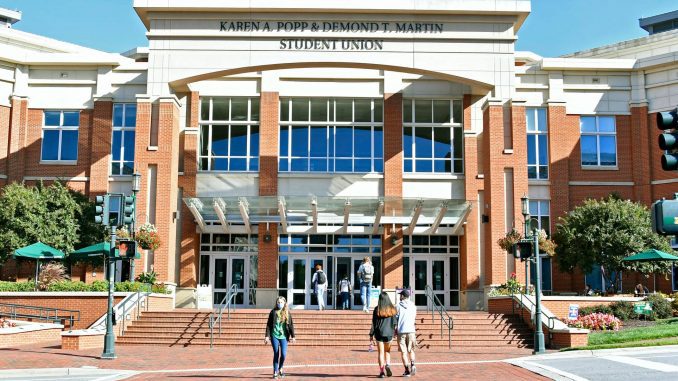
CHARLOTTE – UNC Charlotte announced a residence hall is undergoing testing for COVID-19 following wastewater detection of SARS-CoV-2, the virus that causes COVID-19.
The University’s wastewater testing has detected the presence of SARS-CoV-2, the virus that causes COVID-19, in its routine sampling in one residence hall.
UNC Charlotte is not identifying the residence hall for the privacy of its residents, but all residents and staff of the hall have received information directly from Housing and Residence Life.
Per established protocols, all residents are required to remain in the building until they can be tested for COVID-19 on Friday afternoon.
The university says all residents of the building are required to remain in place except to pick up to-go meals, accept meal delivery and attend medical appointments.
At this time, no residents of the residence hall have reported symptoms of a COVID-19-related illness, and no additional residence halls are affected at this time, according to UNC Charlotte.
Residents will remain under this directive until their test results are returned approximately 24 hours after specimen collection. Those testing positive or identified as a close contact of anyone who tests positive will be placed in quarantine/isolation in accordance with the University’s on-campus quarantine/isolation protocols.
UNC Charlotte is using wastewater testing because studies have indicated it can identify the presence of SARS-CoV-2 days before symptoms appear.
Wastewater surveillance has been used in previous viral outbreaks. In 1962, Joseph Melnick, who worked at Baylor College of Medicine and was a pioneer in polio research, realized polio could be detected in wastewater and started sampling it.
That research prompted Melnick to push for a quicker use of the then-new oral polio vaccine, which helped stop outbreaks of the disease, said Anthony Maresso, an associate professor of molecular virology and microbiology at Baylor College of Medicine.
“So, we can learn from this lesson of history of the importance of doing such measures for public health interventions,” Maresso said.
The Associated Press contributed to this report.



